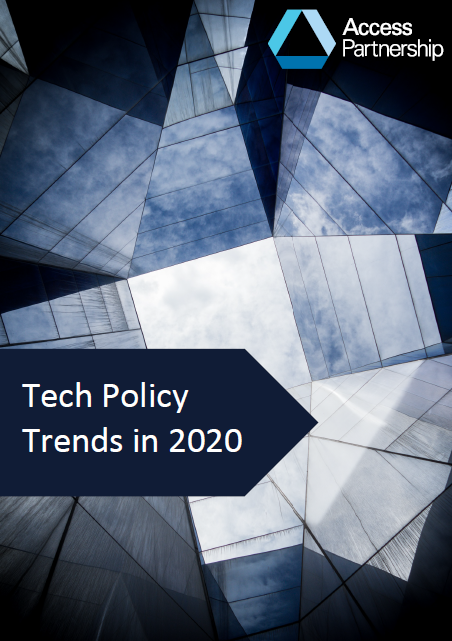Over the past 20 years, Access Partnership has monitored and influenced the environment for technology worldwide. During this time, new data-driven businesses have emerged from start-ups and tech giants alike. As these companies roll out new products and services, governments are re-considering their approach to technology and the terms under which they adopt it.
In this report, we present our view of the top ten tech policy trends to watch for in 2020. From AI regulation, to hardware and infrastructure, our teams explore how shifts in tech policy could disrupt life globally. While some governments seek to leverage the benefits of 5G, artificial intelligence, IoT and data, others indulge in a desire to confront Big Tech borne by a tailwind of increased protectionism and climate urgency.
The notion of a “techlash” is a convenient rhetorical device, underpinned by a real risk of regulatory over-reach that can stymie economic growth for some and leave an unfair advantage for others. The trends we highlight here push in both directions; from this chaos we at Access Partnership continue to push for order.
We wish you a happy and careful reading about this great challenge of the new decade.






